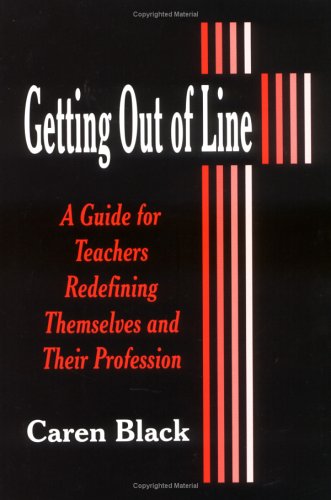Image: frogsprog, CC BY-SA 3.0
Since the Bush II administration, under the influence of neocons Vice President Cheney and Defense Secretary Rumsfeld, invaded Iraq in 2003, the American empire has claimed the right to preemptive invasion and “regime change.” This doctrine is a further development of previous US claims of right to invade countries and alter their governments begun in the 1898 Spanish American War. At that time, the McKinley administration claimed to be liberating the Cubans while leaving them free to govern themselves; but then Congress passed the Platt Amendment, in which the US claimed the right to intervene militarily in Cuba whenever it served our interest. Thus, the US retains a military installation and notorious prison camp at the best Cuban harbor, Guantanamo Bay.
When avowed imperialist Teddy Roosevelt became president after McKinley’s assassination, he added the “Roosevelt Corollary,” to the Monroe Doctrine, claiming US hegemony in the Western Hemisphere. To this day, any Latin country nationalizing resources and redistributing wealth downward, risks US intervention to protect its business interests, from United Fruit bananas in Guatemala to Kennecott copper in Chile. Since World War II’s end, intervention is generally done through CIA covert ops and organizing opposition to overthrow socialist governments, often killing many in the process.
During the Cold War, the CIA acted frequently against “non-aligned” countries, claiming independence of both the Soviet and Western blocs. One thinks of US covert ops replacing the Congo’s Lumumba, and Indonesia’s Sukarno with murderous dictators willing to cater to American corporate interests. The Cold War occasioned the building of many US bases abroad to project power under the banner of “containing” communism. Thus was facilitated tremendous growth of US international corporate interests under military protection. Such policy was expensive, leading to outsized “defense” budgets which increasingly shortchanged domestic needs.
Avoiding head on confrontation with the Soviets or Chinese during the Cold War and the possibility of nuclear war, the US fought proxy wars with the communists, the longest and most traumatic, in Vietnam. The last war fought with draftees, it was also the last to produce a multi-generational peace movement, together with a cultural upheaval that questioned suburban consumerism and the overall acquisitive American way of life. But almost as soon as the peace movement and “counterculture” arose and challenged reigning Cold War ideology, so too did one to counter it, reasserting the virtues of “democratic capitalism.”
In think tanks like the Rand Corporation and Hudson Institute “neoconservatives” strategized US global hegemony, and in political magazines like Commentary they attacked peace activism and countercultural expression. When the Soviet Union broke apart and the Cold War ended with both Russia and China going capitalist, the neocons retained their militant posture, seeking a “benign” American worldwide imperium. They saw the world as necessarily unipolar, with the US as the one superpower, having the right to police the planet in its own interest.
Unlike more progressive activists, neoconservatives pay scant attention to the growing environmental and climate crisis. Their commitment remains to the consumer economy, run on fossil fuels and computer technology. The idea of powering down, decentralizing and creating a less energy intensive way of life is anathema to these technocrats and their Wall Street allies. Now in key positions in the defense and foreign policy establishment, neocons seek unrestricted access to the earth’s dwindling resources. Rather than viewing other great powers as partners to create a sustainable planetary way of life, they view them as competitors and adversaries in cornering the world’s remaining resources. Neoconservatism views the other great nuclear armed powers, Russia and China through a one-dimensional militarist lens.
In service to material ends, neocons have readapted imperialism to justify preemptive war against countries they deem any level of “threat.” Their real purpose is to seize resources, while further projecting power. Countries whose leaders want to control their own resources thus often find themselves in US gunsights. Neocon operatives have produced coups and “color revolutions”, which have often produced chaos in former Soviet bloc countries and republics in Eastern Europe, such as Ukraine, as well as in Middle Eastern oil states.
Under neocon influence both major political parties have supported US invasion and devastation of Iraq and Libya in particular, killing over a million and creating a massive refugee crisis. And now they call for “regime change,” in Syria. The Assad government there is allied to Russia and Iran, neocon designated enemies. But the underlying issue is the routing of a fuel pipeline. Siding with Jihadist rebels, neocons again demand “regime change,” against a secular government. Regime change is a euphemism for waging aggressive war, condemned at the Nuremberg Tribunal, which tried the Nazi war criminals at the end of World War Two. The Assad government has drawn in Russian air power to fight the Islamists. And China has recently joined Russia in a support capacity. In testifying before the Senate Armed Services Committee and asked about creating a no-fly zone in Syria, Chairman of the Joint Chiefs of Staff, Marine General Joseph Dunford stated it would “require us to go to war, against Syria and Russia. That’s a pretty fundamental decision that certainly I’m not going to make.” Do Americans really want to trigger a likely nuclear Third World War? I seriously doubt it.
Stephen Berk, PhD is Emeritus Professor of History, California State University Long Beach, author of two books on US History, and political columnist for a Pacific Northwest monthly newspaper.
Essay reprinted by permission of the author.



















